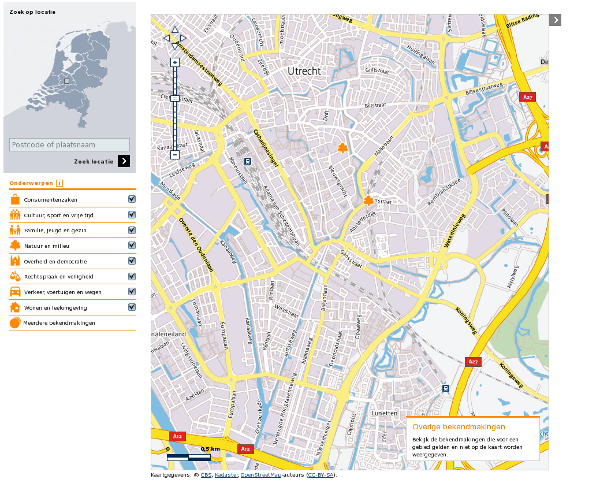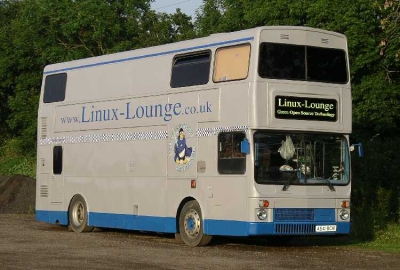 Yesterday the Charity Commission approved Wikimedia UK, the UK membership organisation supporting Wikipedia and the other Wikimedia projects, as a registered charity.
Yesterday the Charity Commission approved Wikimedia UK, the UK membership organisation supporting Wikipedia and the other Wikimedia projects, as a registered charity.
The news comes shortly before the launch of this year’s global Wikimedia fundraiser. Starting on 14th November, Wikimedia UK aims to raise £1 million to support Wikipedia and its sister projects. The Charity Commission’s decision, regarded as a milestone in charity law, means that for the first time British donors to Wikimedia will be able to make their donations go further with Gift Aid.
For Wikimedia UK being recognised as a charity is a springboard for ambitious plans to work with a growing range of major organisations (including the British Museum and British Library). Wikimedia UK recently appointed its first Chief Executive and will open new offices in central London on November 14th.
Roger Bamkin, Chair of Wikimedia UK, welcomed the gaining of charitable status, saying, “Achieving charitable status is the culmination of hard work by the Board and by Wikipedian John Byrne and board member Steve Virgin. John, in particular, has worked tirelessly with the volunteer community to create the most persuasive case and to recruit the best legal team to present it. Wikimedia UK is anticipating another successful year of outreach and believes we will build further upon the time, dedication and effort of a wonderful group of volunteers in the Wikimedia community. We would like to thank the charity team of Stone King LLP for their outstanding work and understanding of our unique activities.”
Leading charity law specialists Stone King LLP, who advised Wikimedia UK on the successful application for charitable status, describe Wikimedia UK’s registration as “a milestone in the development of charity law in England and Wales” and go on to say in their own statement:
“Wikimedia UK’s registration as a charity is a significant step toward the updating of charity law to reflect developments in modern communications and the evolution of user-generated content. The promotion of open access to content and user-generated and -enriched content has not, until now, been recognised as a charitable purpose. Stone King and Wikimedia UK are therefore delighted that the Charity Commission has made the bold and wholly justified step that acknowledges the profound contribution that properly managed and regulated open content makes to society.”
Wikimedia UK would like to acknowledge the staff of the Charity Commission for England and Wales and Her Majesty’s Revenue & Customs Charities team for their effort and patience throughout the application process, which was complex and involved lengthy submissions of evidence.
Raising funds for 2012
Wikimedia UK will be joining the global Wikimedia fundraiser, starting on 14th November, to raise £1 million as part of a global fundraising drive to keep Wikipedia and its sister projects running. Wikimedia UK supports work to engage more people and institutions, in the UK and worldwide, with the Wikimedia movement. Fundraising banners will display on all nine Wikimedia projects, inviting donors to make a donation to Wikimedia UK. For the first time, UK donors will have the option to make a Gift Aid declaration online, adding up to 25% to the value of their donation. Also for the first time, UK donors will be able to give by direct debit. Wikimedia UK is hoping that, with the help of Gift Aid and Direct Debits, the UK will provide greater support to the Wikimedia projects than last year’s fundraiser, which raised around £600,000 from over 30,000 individual donors in the UK.
Wikimedia UK uses the donations for our outreach projects and initiatives in the UK including projects teaming with volunteers outside the UK, and provide a grant to the Wikimedia Foundation, the US non-profit that co-ordinates the national chapters’ work globally, to operate the servers and develop the software on which the projects depend.
An ambitious programme of activities in the UK
Over the last year, Wikimedia UK has begun an innovative program of outreach activities that have included partnerships with cultural sector organisations including the British Library, the British Museum, Derby Museum and Art Gallery, the National Archives, Coventry’s Herbert Art Gallery and Museum and the National Maritime Museum. There have been a number of Wikipedia training academies with organisations such as Cancer Research UK, the Medical Research Council and a workshop at the Institute of Physics. The University of Bristol partnered Wikimedia UK with a UK Outreach summer internship and there was also a Wikipedian in Residence working with ARKive, the leading global biodiversity organisation.
Wikimedia UK’s 2012 activities will build on these partnerships and expand to include sessions to build a network of volunteers across the UK, including Wikipedians in Residence at a wide range of cultural and educational organisations. These will significantly enhance the information that the Wikimedia projects provide on the two World Wars in advance of the centenary of the start of World War 1. Wikimedia UK’s plans for activities in 2012 are summarised at http://www.wikimedia.org.uk/wiki/2012_Activity_Plan.


 World Wide Web Consortium (W3C), the organisation whose mission is to lead the Web to its full potential, is holding its first ever developer conference.
World Wide Web Consortium (W3C), the organisation whose mission is to lead the Web to its full potential, is holding its first ever developer conference. On 8th November the Berlin Regional Court issued its decision in the case AVM Computersysteme Vertriebs GmbH (AVM) v. Cybits AG (Cybits) (
On 8th November the Berlin Regional Court issued its decision in the case AVM Computersysteme Vertriebs GmbH (AVM) v. Cybits AG (Cybits) ( Moreover, the court upheld an auxiliary claim raised by AVM. In its ruling, it enjoins Cybits from distributing the software only in case it causes the web interface to display a wrong status of the internet connection and web filtering software. “But this is a side issue, the important part is: Free Software gives everybody the right to use, study, share and improve it. Nobody should be allowed to prevent others from executing those rights”, says Matthias Kirschner, FSFE’s German co-ordinator.
Moreover, the court upheld an auxiliary claim raised by AVM. In its ruling, it enjoins Cybits from distributing the software only in case it causes the web interface to display a wrong status of the internet connection and web filtering software. “But this is a side issue, the important part is: Free Software gives everybody the right to use, study, share and improve it. Nobody should be allowed to prevent others from executing those rights”, says Matthias Kirschner, FSFE’s German co-ordinator.
 Yesterday the
Yesterday the 





